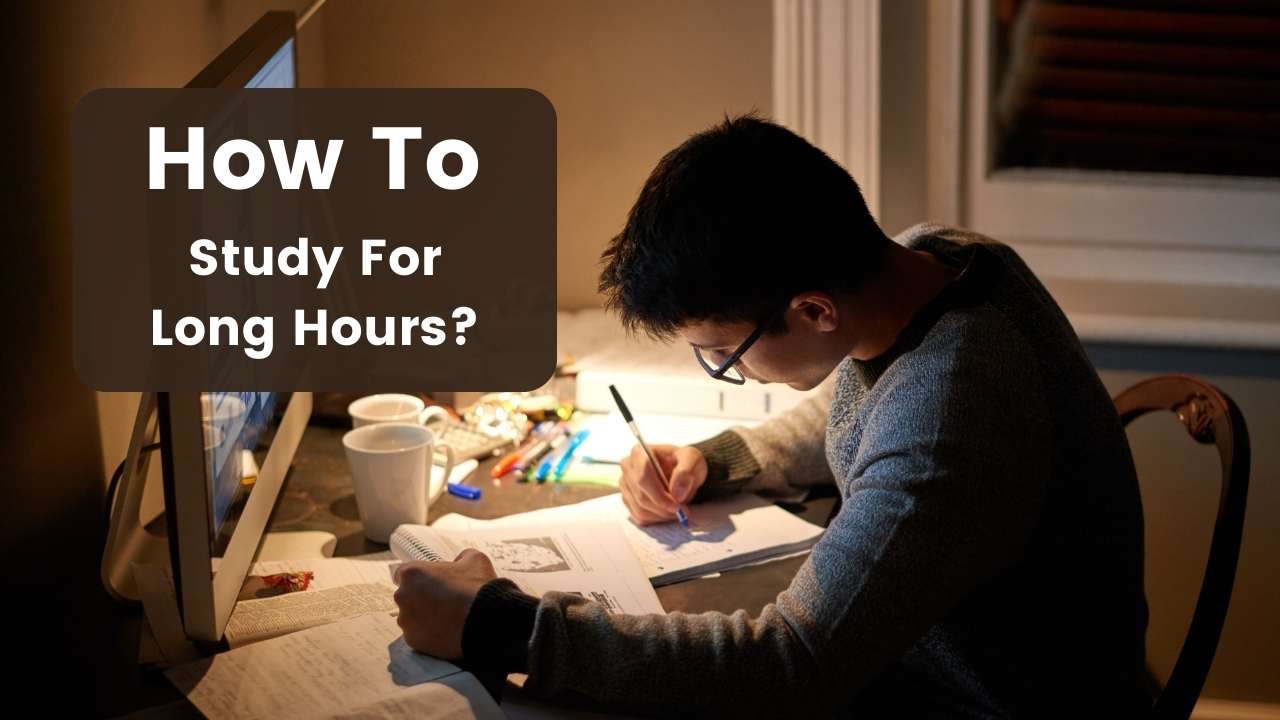Studying for hours on end is difficult, even for people with good attention spans. You might be able to stay focused for a few minutes at a time, but after that it can be hard to get back into the zone without a little help. If you have trouble studying for long hours without getting distracted, follow these tips so you can learn effectively:
Contents
Set a time limit for work.
The best way to stay focused on your work is by setting a time limit. You can set your own schedule, but it’s important that you make sure the time limit is realistic. For example, if you are working on a project and have many tasks to complete, set a time limit for each task instead of just one overall study session. If you only have five minutes before class starts and need to study for an upcoming exam, don’t spend those last few minutes browsing Facebook or Instagram! Instead put all of your energy into studying so that when class starts (or whenever else), all of those distractions won’t bother you anymore!
Use the Pomodoro technique.
The Pomodoro technique is a time management method created by Francesco Cirillo. It’s based on the idea that frequent breaks can improve productivity, and it has become popular among students who need to get work done quickly and efficiently.
The basic idea of the Pomodoro technique is simple: work for 25 minutes without distractions, then take a 5-minute break before starting another Pomodoro (a “piece” or “slice” of bread). You can repeat this cycle as many times as needed throughout your day–or even keep going until you finish your task! If you don’t have a timer handy, there are several apps available for phones and computers that will do all the timing for you automatically–just set them up beforehand so they start when you need them to begin working again!
Get enough sleep.
You may have heard that sleep is important for learning and memory. But you might not realize that it’s also critical for your ability to focus. When you’re tired, your brain has a harder time processing information and making decisions. That’s why getting enough rest at night (and avoiding naps during the day) is so important when studying long hours–your brain needs breaks from thinking!
The ideal amount of sleep varies from person to person, but six hours is usually enough for most people to function well throughout the day without feeling sleepy or fatigued. If you’re having trouble focusing on what you need to do because of how tired or stressed out you feel, try going through some relaxation techniques before diving back into studying again
Do something physical before studying.
Before you start your long study session, get your blood flowing by doing something physical.
- Go for a walk around the block or the neighborhood.
- Exercise in the gym or at home with dumbbells and resistance bands (or use YouTube videos).
- Take a quick shower and wash your face, which will wake you up and make it easier for your brain to focus on cognitive tasks like reading and writing rather than being distracted by other thoughts like “Geeze I need more sleep.”
Eat well and drink water regularly.
- Eat well and drink water regularly.
- Avoid eating or drinking too much sugar, caffeine, alcohol and salt. If you’re hungry, eat something light–a peanut butter sandwich is a good choice. Try not to snack on junk food; instead opt for healthier options like fruit or yogurt with granola mixed in (or just plain yogurt).
Take short breaks, but don’t let yourself get distracted.
When you’re studying for long hours, it’s important to take breaks. The brain needs a break every so often to process all that information and let your mind rest. When you’re done with a certain section of your study material or if there’s nothing else left to study in that book or chapter, then it’s time for a break.
When taking breaks:
- Make sure there are no distractions around (e.g., turn off your phone).
- Make sure you won’t be disturbed by anyone while taking your break (e.g., close the door).
- Try not to get distracted by other things while doing something else during this time (e.g., don’t check social media).
You can study effectively by taking some simple steps to stay focused
- Make sure that you have a clear goal.
- Use the Pomodoro technique to stay focused on your studies.
- Get enough sleep and do something physical before studying (like walking or stretching).
- Eat well and drink water regularly while studying, especially if you’ve been sitting for long periods of time without taking breaks. It’s also important not to skip meals!
- Take short breaks when needed–but make sure that they don’t become distractions themselves!
Conclusion
I hope you’ve found these tips helpful. If you want to learn more about how to study effectively, check out the resources below.

